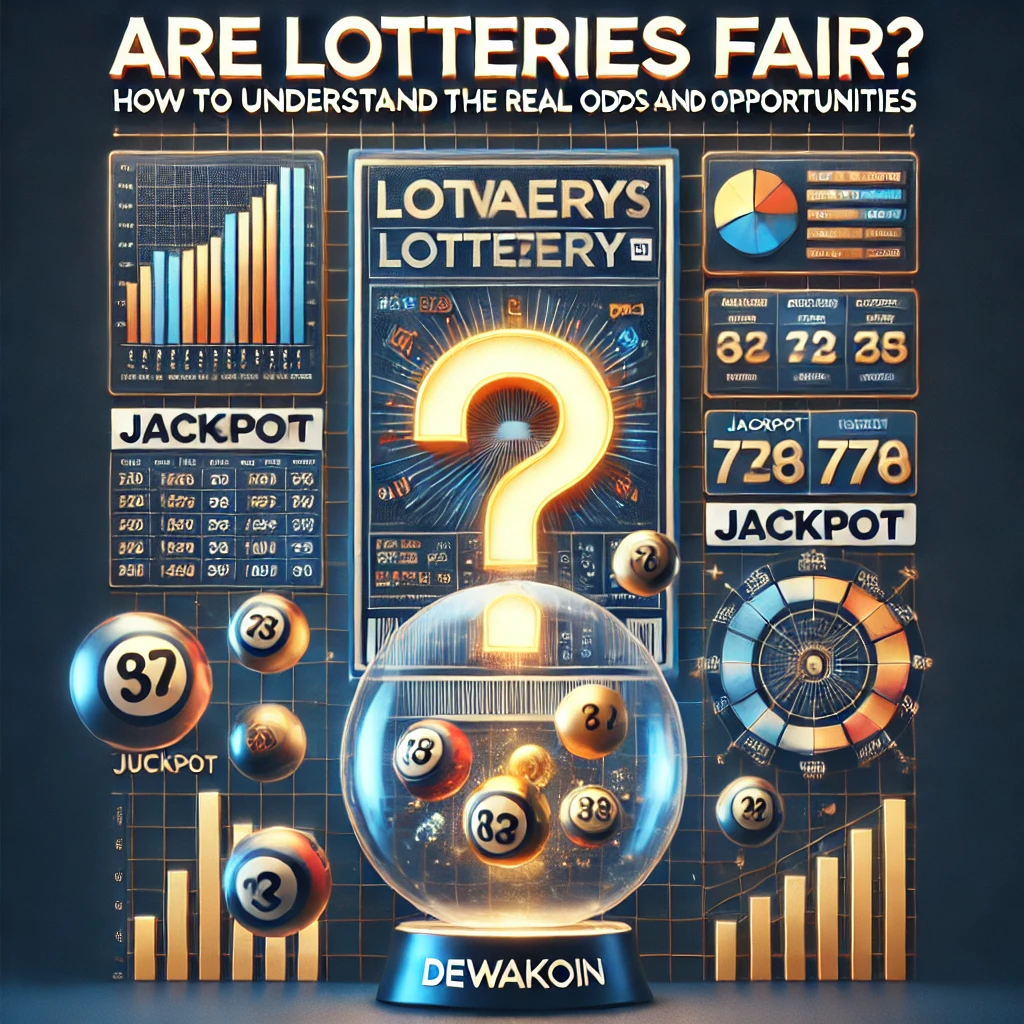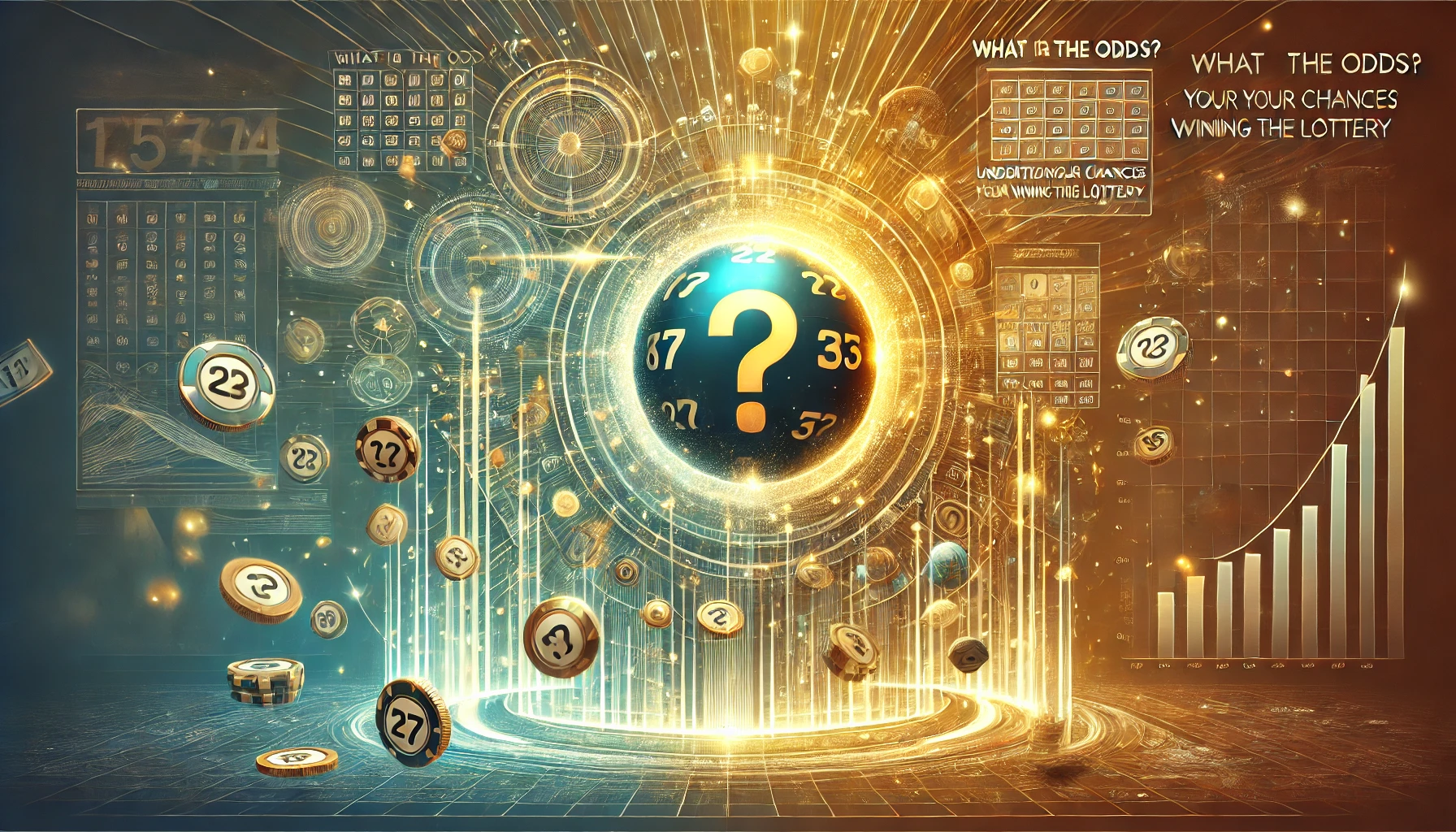
Lotteries have long been a source of hope and excitement, offering players the chance to turn a small ticket into a life-changing jackpot. But with massive odds against winning, many people question: Are lotteries really fair?
At Dewakoin, we break down how lottery systems work, the real odds of winning, and whether lotteries are truly fair for players.
1. How Do Lotteries Work?
Lotteries operate using a randomized drawing system that ensures fairness. Each ticket has an equal chance of being selected, but the sheer number of tickets sold makes winning highly unlikely.
Key Lottery Features:
🎟 Random Number Generators (RNGs): Used in online and digital lotteries for fair draws.
🔍 Government Regulations: Licensed lotteries are heavily regulated to prevent fraud.
💰 Jackpot Rollovers: If no one wins, prizes grow, increasing potential payouts.
✔ The system itself is fair, but the odds are designed to favor the house.
2. What Are the Real Odds of Winning?
Winning a lottery jackpot requires matching all the correct numbers, making the odds extremely low.
Odds of Winning Popular Lotteries
| Lottery Game | Jackpot Odds | Any Prize Odds |
|---|---|---|
| Powerball (USA) | 1 in 292 million | 1 in 24.9 |
| Mega Millions (USA) | 1 in 302 million | 1 in 24 |
| EuroMillions (Europe) | 1 in 139 million | 1 in 13 |
| El Gordo (Spain) | 1 in 100,000 | Multiple prize tiers |
| Dewakoin’s Exclusive Lottery | 1 in 10 million | 1 in 20 |
✔ While winning the jackpot is difficult, smaller prizes are much more attainable.
3. Are Lotteries Rigged? Debunking Common Myths
Many people believe that lotteries are rigged or that certain numbers have a better chance of winning.
Common Lottery Myths vs. Reality
❌ Myth: The lottery is rigged, and winners are chosen in advance.
✅ Reality: Official lotteries use independent auditing and random draws to ensure fairness.
❌ Myth: Some numbers are “hot” or “due to win.”
✅ Reality: Lottery draws are random; past results do not affect future outcomes.
❌ Myth: The more tickets you buy, the more likely you are to win.
✅ Reality: While buying more tickets increases your chances, your odds are still incredibly low.
✔ Legitimate lotteries are fair, but they rely on player participation to build massive jackpots.
4. Smart Strategies to Improve Your Lottery Experience
While you can’t change the odds, you can maximize your chances of winning smaller prizes.
A) Join a Lottery Pool
- Pool money with friends, family, or coworkers to buy more tickets.
- More tickets = higher probability of winning something.
B) Play Games with Better Odds
- National lotteries like Powerball have worse odds than smaller local or online lotteries.
- Consider playing El Gordo, scratch cards, or smaller jackpot games.
C) Take Advantage of Promotions
- Many online lotteries offer free tickets, cashback, or second-chance drawings.
- Dewakoin provides exclusive lottery bonuses for extra entries.
✔ A strategic approach can increase your chances of winning a prize—even if it’s not the jackpot.
5. The Future of Lottery Fairness: Technology and Transparency
With digital lotteries and blockchain technology, lottery transparency is improving.
What’s Changing in Lottery Fairness?
🛡 Blockchain Lotteries: Publicly verifiable draws prevent fraud.
📊 AI-Generated Randomness: Enhances fairness with machine-verified random results.
📱 Mobile Lottery Apps: Instant results and easier access to global lotteries.
✔ New technology is making lotteries even more transparent and fair for players worldwide.
6. Final Verdict: Should You Play the Lottery?
Lotteries are fair in terms of randomized drawings and transparency, but the odds are against the player.
Best for Players Who:
✔ Enjoy the thrill of a potential life-changing win.
✔ Play responsibly and understand the low chances of winning.
✔ Want to support charities and public projects funded by lotteries.
Looking for fair lottery opportunities? Join Dewakoin today and participate in trusted online lotteries with transparent draws and exciting rewards.
